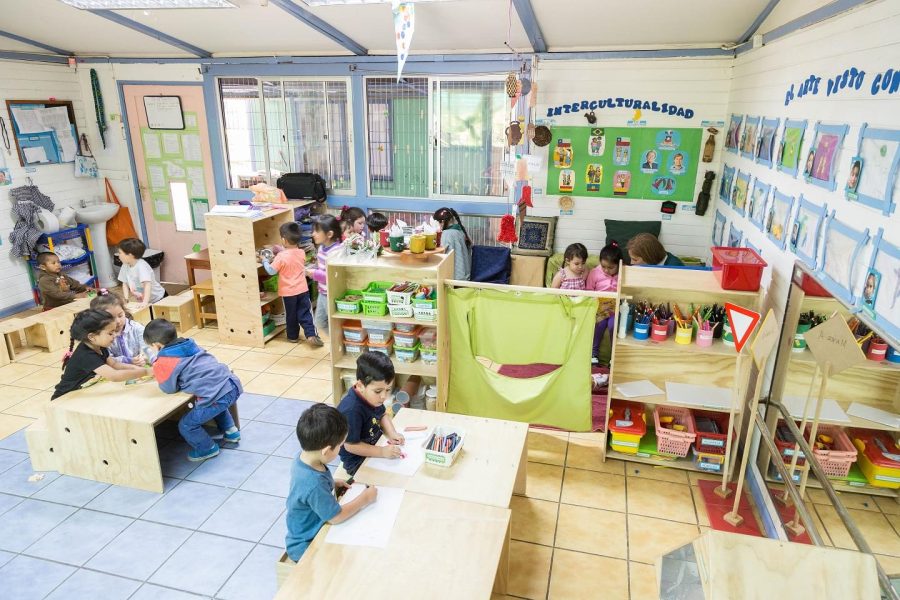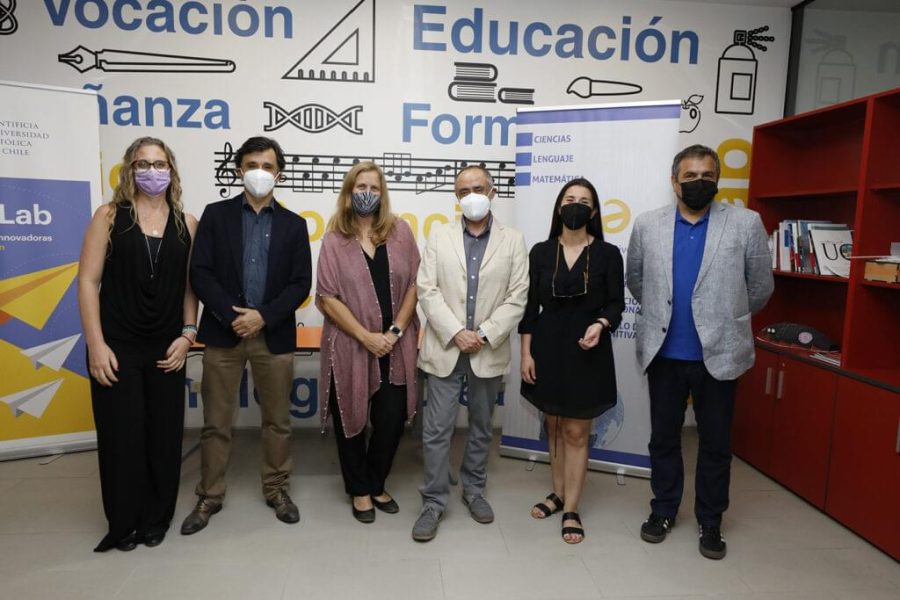UC signs important agreement with Efecto Educativo for the internationalization of educational innovation MAFA
January 17, 2022
Through a signing ceremony, held in the cowork space of EduLab UC, in the UC Anacleto Angelini Innovation Center, The representatives of both institutions met to celebrate this milestone with which MAFA will extend its impact within the Chilean educational system and in the rest of the continent.
MAFA is a technology developed by an interdisciplinary team led by academics Cynthia Adlerstein (UC Education), Patricia Manns and Alberto González (UC Design), that changes the paradigm of the traditional learning environments of Chilean preschool education, through a set of supports that replace traditional furniture, a virtual platform and a didactic resource for girls and boys to participate in the design of their classrooms.

This educational solution was licensed to educational effect, Chilean company with more than ten years of experience, dedicated to the development and implementation of high-quality educational solutions and pedagogical value based on technology and didactic material.
"For Educational Effect, receiving the MAFA license is the opportunity to become part of a high-quality research and development process and to be able to bring better learning conditions and comprehensive development to all boys and girls. Being part of this alliance with the Universidad Católica and assuming the responsibility of taking this model to the educational system in Chile and Latin America, is the possibility of enriching and building a pedagogy that is aware of the place and its contribution to child development," said Alberto Mora. , pedagogical director of Efecto Educativo.

Thanks to the expansion of MAFA to other countries, it will be possible to respond in new contexts to a widespread problem in initial education, where the furniture responds to a traditional and monofunctional model, that reproduces adult or school ergonomics in a small size.
MAFA places boys and girls as inhabitants and co-constructors of the physical learning environments. It transforms the classroom into a third educator, creating an organic and flexible ecosystem, promoting the self-determination of the child to decide how to use each of the parts of the physical environment for learning.
“This agreement with Efecto Educativo is very important, because it allows us to transfer MAFA to education in Chile and outside of Chile. What it does is put boys and girls as citizens in their educational spaces, and this interests us a lot, because it allows us to continue empowering children in their learning contexts and, above all, as social actors. What MAFA does is generate spatial conditions, so that children can coexist with the adult world in equality and dignity” said Cynthia Adlerstein, CEO of MAFA.
The MAFA system has already been transferred to JUNJI to be used in its kindergartens throughout the country, with more than 1600 favored children and about 240 professionals trained in place-aware pedagogies. In addition, in 2020, he graduated from the University of Talca, expanding his scope to initial teacher training and advancing to the continuous training that accompanies the system.
“MAFA symbolizes the way in which the Faculty of Education aspires to impact society and the school system. Based on a solid production of knowledge with an interdisciplinary basis, generate solutions and proposals that decisively improve the educational opportunities of the new generations”, declared Alejandro Carrasco, dean of the UC Education Faculty.
Source: EduLab
